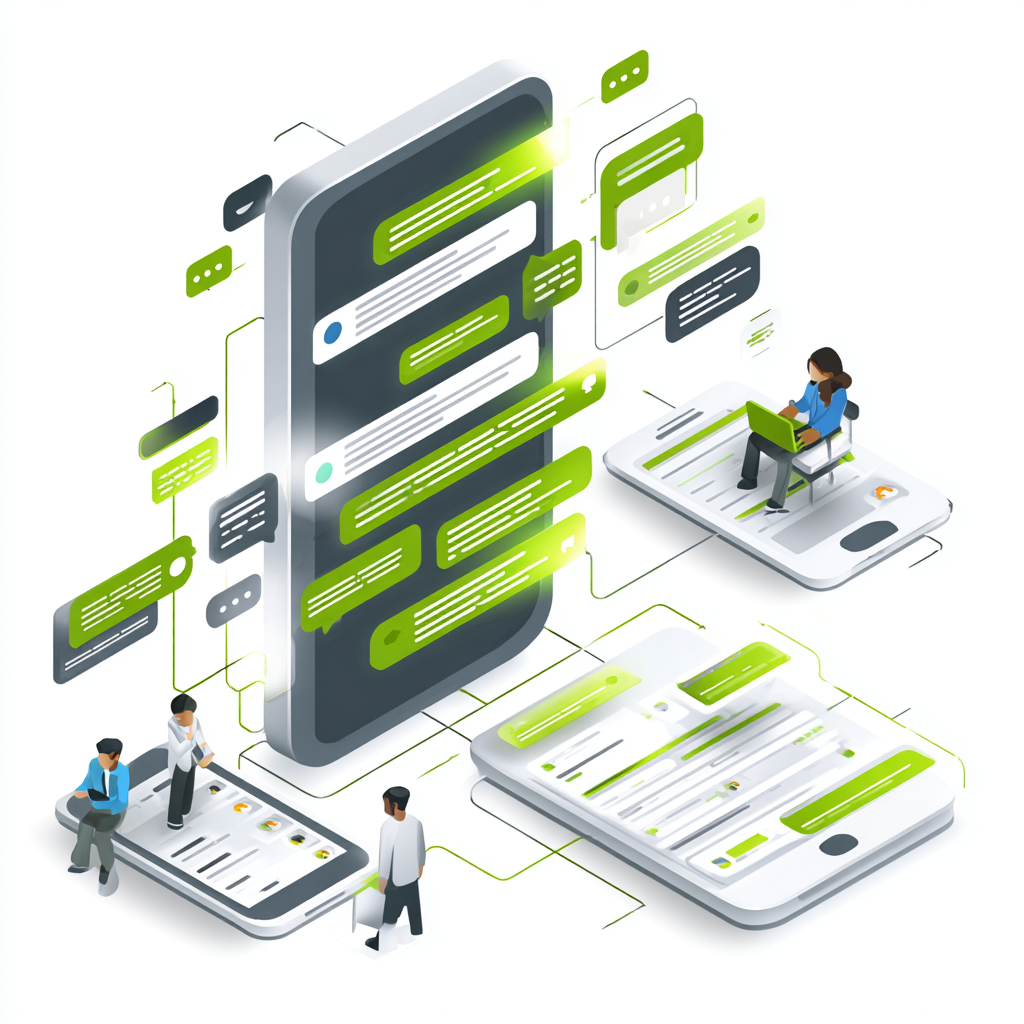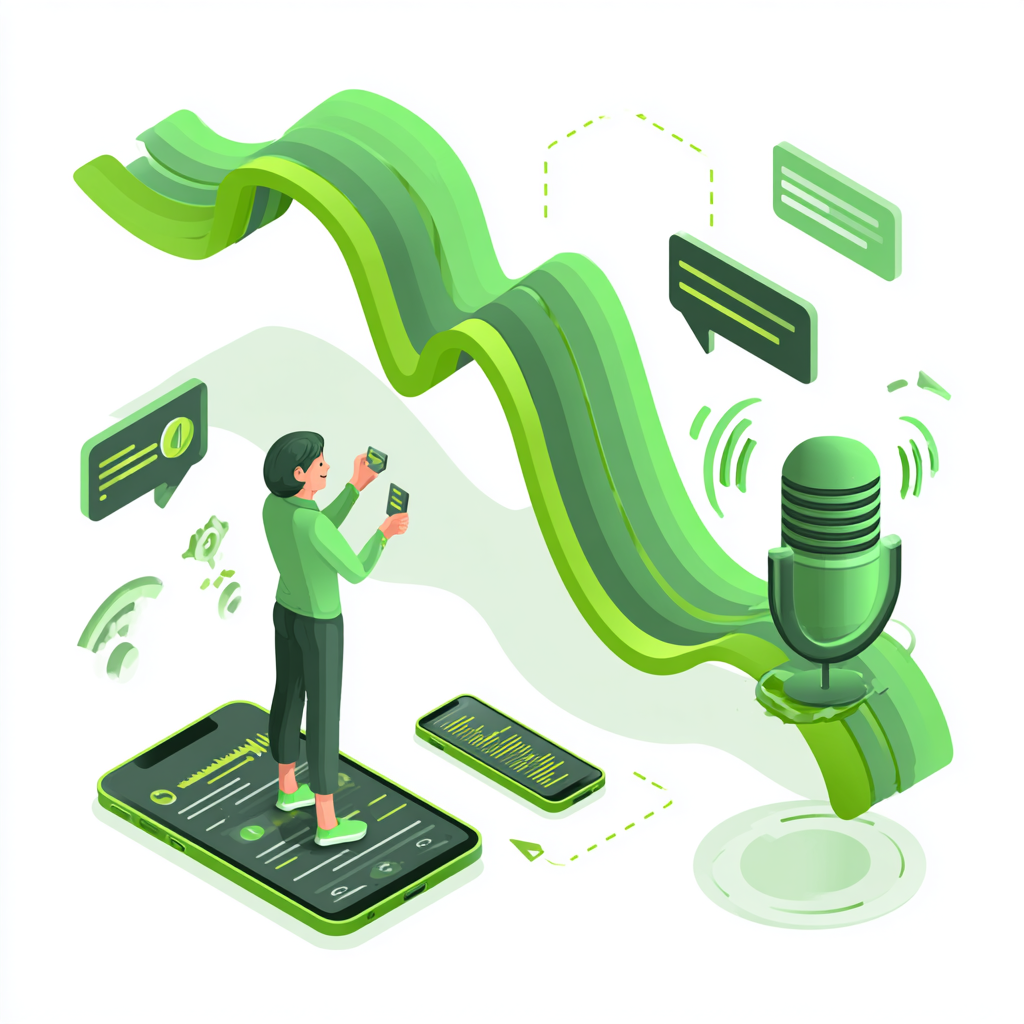Businesses constantly seek ways to enhance customer experience (CX). Artificial Intelligence (AI) has emerged as a game-changer, helping companies streamline customer interactions and boost efficiency and personalized services. From chatbots to predictive analytics, AI is revolutionizing how brands engage with customers. This article explores 10 ways AI streamlines customer experience, real-world applications, and strategies businesses can implement to optimize CX.
What is an AI customer experience?
An AI customer experience (AI CX) uses artificial intelligence to enhance, personalize, and automate customer interactions across different touchpoints. AI-powered tools help businesses improve service efficiency, reduce response times, and create more personalized customer journeys.
Key aspects of AI in customer experience:
- Automation: AI automates routine tasks like answering FAQs, processing orders, and handling complaints.
- Personalization: AI analyzes customer behavior and preferences to offer tailored recommendations.
- Predictive analytics: AI predicts customer needs based on past interactions, allowing businesses to solve issues proactively.
- Chatbots and virtual assistants: AI-driven chatbots provide 24/7 support, reducing wait times and improving engagement.
- Sentiment analysis: AI detects customer emotions in messages and reviews to enhance responses and improve satisfaction.
- Voice and facial recognition: AI enables secure, seamless authentication and interactions.
Examples of AI CX in Action:
- Amazon uses AI-powered recommendation engines to suggest products.
- Netflix personalizes movies and shows recommendations using AI.
- Banks use AI to detect fraud and automate transactions.
- Retailers use AI chatbots to assist customers with shopping.
Why AI CX Matters?
AI-driven customer experience helps businesses:
- Improve efficiency and reduce costs.
- Enhance customer satisfaction with faster, more relevant interactions.
- Provide round-the-clock support and seamless service.
The role of AI in customer experience
AI is crucial in transforming CX by automating processes, reducing response times, and providing data-driven insights. Some of the key benefits AI offers include:
- Personalized interactions: AI analyzes customer behavior to deliver customized recommendations and interactions.
- 24/7 Support: AI-driven chatbots and virtual assistants provide round-the-clock support, reducing wait times and enhancing accessibility.
- Predictive analytics: AI forecasts customer needs based on historical data, enabling proactive engagement.
- Process automation: AI-powered tools automate repetitive tasks, allowing human agents to focus on complex issues.
- Enhanced data insights: AI gathers and processes vast customer data to improve decision-making.
- Improved customer retention: AI identifies patterns in customer behavior to predict churn and offer solutions to retain customers.
- Faster issue resolution: AI speeds up problem resolution by directing customers to the most appropriate support channels.
10 Ways AI streamlines customer experience
Artificial Intelligence (AI) is revolutionizing customer service, making it more efficient, personalized, and proactive. Businesses leverage AI to enhance customer interactions, predict needs, and streamline operations. Here are ten ways AI is transforming customer experience.
1. Instant customer support with AI chatbots and virtual assistants
- AI-powered chatbots and virtual assistants provide quick, round-the-clock responses, improving engagement and efficiency.
- Example: Companies like Amazon (Alexa) and Apple (Siri) use AI assistants to offer real-time information, recommendations, and support.
- Key benefits:
i.) Reduces human workload
ii.) Ensures 24/7 availability
iii.) Enhances customer engagement
2. Smarter customer support with AI-driven solutions
- AI analyzes past interactions to provide relevant solutions and detect customer sentiment for personalized responses.
- Example: Platforms like Zendesk and Freshdesk use AI to categorize and prioritize customer queries automatically.
- Key benefits:
i.) Faster issue resolution
ii.) Improved service quality
iii.) Increased productivity for support teams
3. Hyper-personalized customer experiences
- AI processes customer data to deliver personalized recommendations, promotions, and content, increasing engagement and loyalty.
- For example, Netflix suggests movies and shows based on viewing history using AI-driven algorithms.
- Key benefits:
i.) Boosts customer engagement
ii.) Drives more sales
iii.) Strengthens brand loyalty
4. Predicting customer needs with AI analytics
- AI can anticipate customer behaviors and provide proactive solutions by analyzing historical data.
- Example: Banks use AI to detect spending patterns and suggest financial products tailored to customer needs.
- Key benefits:
i.) Anticipates customer pain points
ii.) Enhances service efficiency
iii.) Builds stronger customer relationships
5. Enhanced security with AI-powered voice and facial recognition
- AI-powered security tools streamline authentication while enhancing protection against fraud.
- Example: Banks use voice biometrics to verify customer identity securely.
- Key benefits:
i.) Reducing fraud risks
ii.) Improves security measures
iii.) Speeds up authentication processes
6. Consistent service quality with AI-driven quality assurance
- AI monitors and evaluates customer interactions to ensure high service standards.
- Example: Liberty London uses Zendesk AI to assess customer interactions and improve response quality.
- Key benefits:
i.) Maintains consistent service quality
ii.) Identifies training gaps for agents
iii.) Enhances team performance
7. Workforce optimization with AI
- AI helps businesses predict staffing needs and automate scheduling for better efficiency.
- Example: Zendesk WFM (Workforce Management) uses AI to forecast staffing requirements based on customer demand.
- Key benefits:
i.) Improves workforce efficiency
ii.) Lower operational costs
iii.) Enhances employee productivity
8. Increased sales with AI-driven promotions and offers
- AI personalizes promotions by analyzing customer behavior and delivering relevant offers at the right time.
- Example: E-commerce platforms use AI to recommend deals based on browsing and purchase history.
- Key benefits:
i.) Boosts conversion rates
ii.) Enhances customer satisfaction
iii.) Maximizes marketing ROI
9. Smarter self-service with AI-powered knowledge management
- AI keeps knowledge bases up-to-date and easily accessible, empowering customers with self-service options.
- Example: Zendesk Content Cues identifies outdated help articles and suggests updates.
- Key Benefits:
i.) Improves self-service efficiency
ii.) Reducing customer support requests
iii.) Ensures accurate and updated information
10. Cost reduction and efficiency gains with AI automation
- AI automates repetitive tasks, reducing costs while improving service speed and quality.
- Example: AI chatbots handle routine customer inquiries, freeing up human agents for complex issues.
- Key benefits:
i.) Cuts operational expenses
ii.) Increases efficiency
iii.) Enhances customer service experience
Implementing AI to optimize customer experience
Artificial Intelligence (AI) can significantly enhance customer experience by making interactions faster, more personalized, and more efficient. However, to maximize their impact, businesses should strategically implement AI solutions. Here are five key steps to optimize customer experience with AI:
1. Invest in AI-powered chatbots
AI chatbots are a game-changer in customer service, handling routine inquiries quickly and accurately. Businesses should implement chatbots that continuously learn from interactions, improving their responses. Advanced AI chatbots can also escalate complex issues to human agents when necessary, ensuring customers always get the help they need. Examples include:
- H&M’s chatbot helps customers find clothing items based on their style preferences.
- Banking chatbots like Erica (Bank of America) assist customers with account inquiries, transactions, and financial advice.
2. Leverage AI for sentiment analysis
AI-powered sentiment analysis tools analyze customer reviews and social media interactions and support conversations to gauge customer emotions. Examples include:
- Coca-Cola uses AI to analyze customer feedback on social media, helping it improve product offerings.
- Customer service platforms like Zendesk and Freshdesk use sentiment analysis to prioritize urgent queries based on tone and urgency.
3. Use AI for personalized marketing
AI helps businesses deliver hyper-personalized marketing campaigns by analyzing customer data, preferences, and behavior. Examples include:
- Amazon and Netflix use AI to recommend products and content based on user browsing and purchase history.
- Email marketing tools like Mailchimp and HubSpot AI personalize email campaigns for higher engagement.
4. Integrate AI with CRM systems
AI-driven Customer Relationship Management (CRM) tools help businesses automate workflows, analyze customer interactions, and provide insights to improve engagement strategies. AI-powered CRMs can predict customer needs, suggest follow-ups, and enhance sales efficiency. Examples include:
- Salesforce Einstein AI and HubSpot AI automate lead scoring, personalize customer interactions, and optimize sales processes.
- AI in call centers predicts which customers are likely to churn and suggests retention strategies.
5. Train employees on AI adoption
AI is only as effective as the people using it. Businesses must train employees to leverage AI tools effectively to enhance their work rather than replace human efforts. Proper training ensures smooth AI-human collaboration and maximizes AI’s potential. Examples include:
- Retail brands train customer support teams to use AI chatbots efficiently for escalations.
- Banks educate employees on using AI-driven fraud detection tools for improved security.
Challenges of AI in customer experience
Despite its advantages, AI adoption comes with challenges, including:
- Data privacy concerns: Businesses should comply with data protection regulations like GDPR to safeguard customer information.
- High implementation costs: AI systems require significant investment in infrastructure and training.
- Customer skepticism: Some customers prefer human interaction over AI-driven solutions.
- Bias in AI algorithms: AI models can exhibit biases if not trained on diverse datasets, leading to unfair outcomes.
- Integration issues: AI systems must adequately integrate with business processes to function effectively.
- Dependence on quality data: AI’s effectiveness relies on high-quality, structured data availability.
The future of AI in customer experience
AI revolutionizes customer experience by enhancing personalization, automating processes, and providing insightful analytics. From chatbots to predictive analytics, AI-powered tools streamline interactions and improve customer satisfaction. However, businesses should address challenges like data privacy and AI bias to ensure responsible implementation. AI technology will unlock even more opportunities to create seamless, engaging, and efficient customer experiences. Businesses can strategically leverage AI to stay ahead in the competitive market, deliver superior customer service, and build lasting relationships with their audience.





